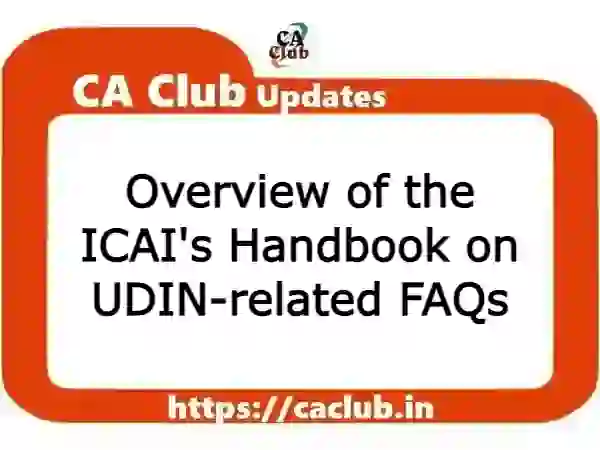The ICAI has released the 2023 edition of the handbook, which contains a revised set of FAQs on UDINs, providing an informative and practical guide for stakeholders.
The new normal, marked by global changes, necessitates professionals, including accountancy professionals, to be accountable for efficiency and productivity. The Institute of Chartered Accountants of India (ICAI) introduced the concept of a unique document identification number (UDIN) to combat misrepresentation and forgeries. Practicing Chartered Accountants are mandated to generate UDINs for certificates, reports, and documents, with over 3 crore UDINs generated to date.
ICAI has continually improved the UDIN system, extending the time limit to 60 days from the signing date, aligning with quality control and auditing standards. Regulators, banks, and state governments acknowledge the usefulness of UDIN, incorporating it into their formats. The UDIN Directorate provides advisories and FAQs to members, ensuring awareness.
The UDIN system is considered historic globally, providing authenticity to documents and aiding regulators and stakeholders in real-time verification. It has become widely accepted as a seal of authentication. The ICAI remains committed to upholding trust through UDIN, which is now mandatory for all IT forms for validity.
UDIN has curbed malpractices as regulators, banks, and stakeholders trust the credibility of documents issued by Chartered Accountants. The ICAI, as a proactive regulator, conceptualized UDIN, making it mandatory for various functions in a phased manner. It enhances transparency, combats malpractices, and contributes to economic development.
ICAI, through data mining, aims to be a true regulator, submitting MIS reports to the government as a partner in nation-building. The booklet, FAQs on UDIN, serves to guide members and regulators in smooth UDIN generation and verification, reinforcing UDIN as a landmark reform globally.
ICAI’s Handbook on UDIN-related FAQs (September 2023 Edition)
